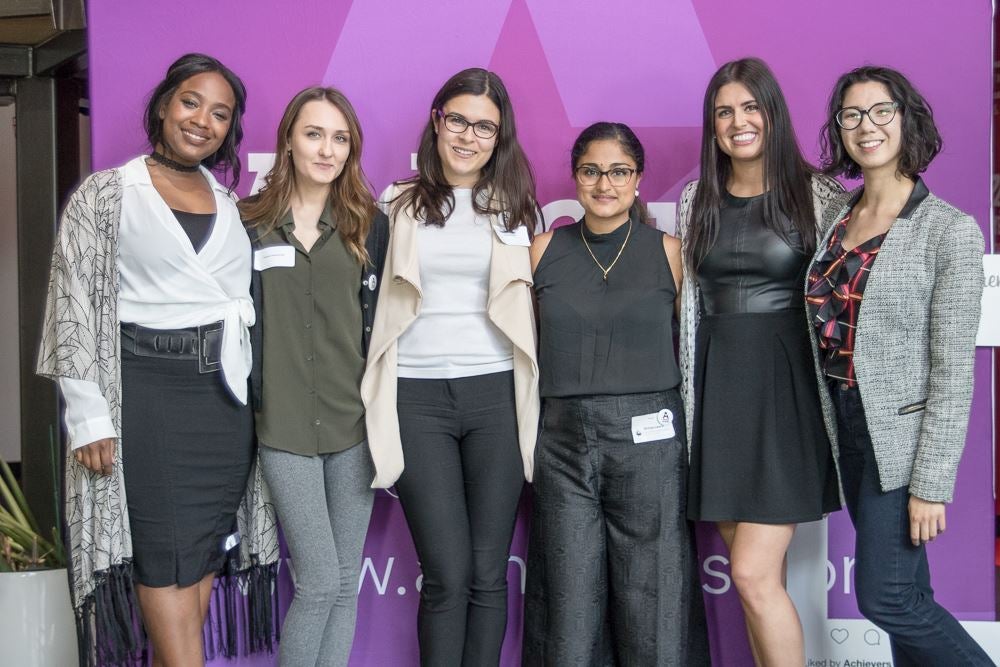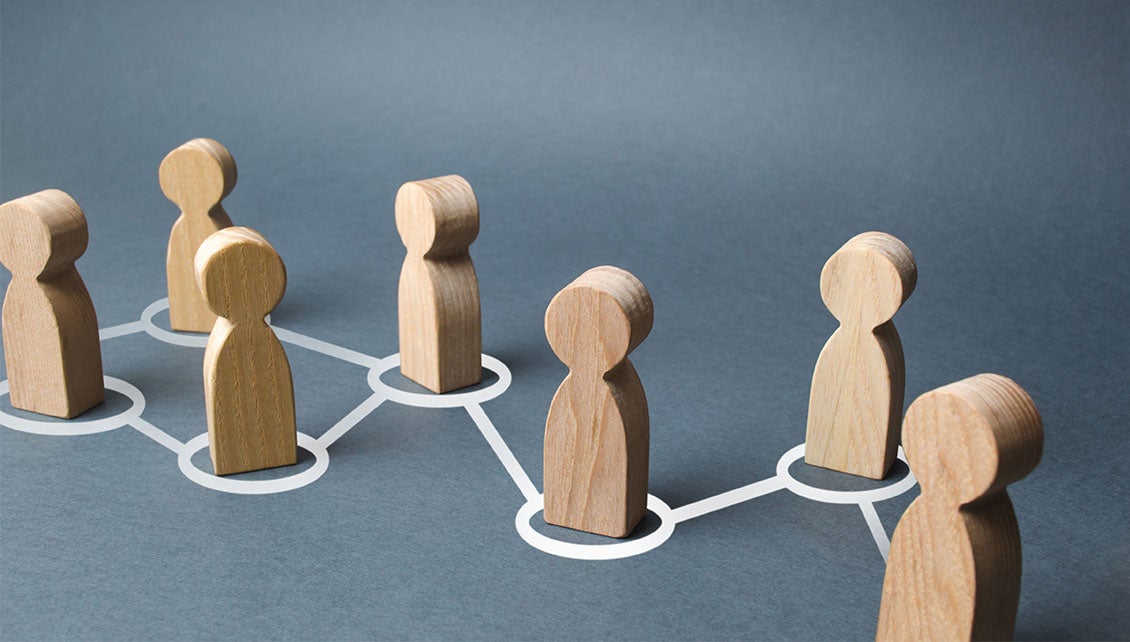Create a culture that means business™
Email address
Did you know inclusive companies are 1.7 times more innovative and 120 percent more likely to hit financial goals? Building an inclusive culture should be at the top of the priority list for every organization, especially leaders. Currently, nearly half (45 percent) of workers say leadership is “minimally” or “not at all” committed to improving company culture. If you’re not actively working to build a positive culture, your employees will disengage from your mission and either leave or — even worse — stick around for the paycheck but become a drag on productivity and customer service. A key step towards building a stronger culture is establishing meaningful employee networks. Employee networks have the power to engage workers and create a more inclusive organizational culture.
Before I came to lead Achievers, I served as the CEO and President of Intuit Canada. I’m proud to say that during my time there, Intuit Canada was recognized as a top place for women to work and a leader in diversity initiatives. Two of the employee groups I loved being a part of at Intuit were the IIN (Intuit India Network) and IMAN (Intuit Muslim Group).
 Celebrating DIWALI with my previous Intuit team
Celebrating DIWALI with my previous Intuit team
I’m also proud to share that Achievers was recently recognized as one of the Top 50 Best Workplaces, Best Workplaces for Inclusion, and Best Workplaces for Women by Great Place to Work Canada. Employee networks are perhaps the single greatest way to promote the type of inclusive culture that helps people thrive and businesses stand out.
What are employee networks?
Employee networks go by many names: employee affinity groups, employee resource groups, and several other combinations of similar terms. Employee networks are voluntary groups of employees that come together based on shared identity or life experiences. Employee networks provide support, enhance career development, and contribute to personal development in the work environment. They create supportive environments and help bring people together.
Sheldon Goode, Director of Diversity and Inclusion at Oshkosh Corp., has conducted research on employee networks and found that these groups also help companies connect to a diverse customer and supplier base, enhance talent development systems, improve leadership skills, and strategize other improvements — all of which leads to stronger business performance overall.
Why are they important?
There are numerous reasons why your organization should get on board with employee networks. For starters, they have an immense impact on giving employees a strong sense of connection and belonging in the workplace. It gives every employee the opportunity to connect with their teammates outside of work around topics and issues that are important to them and gives a voice to specific groups. Employee networks also help educate people to become better citizens by informing them on customs, traditions, and practices. For example, during my time at Intuit, the IMAN group shared how to interact with Muslims, offered insights into what happens in their prayer room, and dived into why their practices are important.
In addition to strengthening connection and furthering education, employee networks offer a fun way to celebrate diversity. This offers your entire workforce the chance to gather and celebrate annual observances such as Black History Month and broaden awareness. Meaningful networks will only bring people together and build a more inclusive organizational culture. As leaders, we need to build out ways for employees to share, learn, and be inspired, so that we can deliver on our mission and differentiate ourselves as employee experience leaders.
Top employee networks to consider for your company
There are numerous types of employee networks that you can apply to your organization. To help you get started, below is my list of top 11 employee networks.
1. A women’s network
Women in the workplace can mentor each other, model a career path, and work on solutions to stubborn glass-ceiling issues within your company. At Achievers, we have the Achievers Women’s Network (AWN). It was created to share information, best practices, education, and experience that will help one another develop leadership skills and career advancing opportunities needed to drive success. AWN strives to provide a safe space for persons of any group or identity striving for universal equality, inside and outside of the workplace.
 Achiever AWN at a hosted event
Achiever AWN at a hosted event
2. An LGBTQ+ network
Rapid cultural changes in the country have led to a new generation of out-and-proud workers, but many companies could use additional leadership on this issue, particularly as it relates to transgender and nonbinary employees. We have an Achievers Proud employee network that invites all allies to be a part of the group, not just those that identify as part of the LGBTQ+ community.
3. A minority network
Depending on how diverse your company is, you may actually want several different networks to address the needs of African American, Asian American, and Latinx employees.
4. A disability network
Workers with physical disabilities face different challenges in the workplace. Also, don’t forget about near-atypical workers and those struggling with chronic illness.
5. A new hire network
The first three to six months are crucial for getting new employees off to the right start, so add an extra layer of support with an employee network geared toward their specific needs. Every new hire at Achievers gets assigned a “buddy” to guide their new A-Player through the onboarding process and help answer any questions about the company, team structures, and processes.
6. A new manager network
Given that 87 percent of managers wish they had more training for their role, an employee network for new managers could offer the mentorship and support your newest leaders need to thrive in their positions. At Achievers, we recently started “Wisdom Wednesdays”, a monthly meeting of people managers to define what great looks like and arm managers with tools and strategies as they lead our most important asset, human capital.
7. A corporate giving network
Did you know 65 percent of Fortune 500 companies offer donation matching programs when it comes to corporate giving? If you don’t already have a corporate giving network focused on giving back, it’s time to add it to your priority list. Consider having a Green Team to help with cleaning up the community at parks. At Achievers, we have the Achievers CARES network. Their mission is to provide employees around the globe with different ways to give back that are meaningful to them through year-round programming of volunteer initiatives, fundraiser events, and donation campaigns. Ongoing initiatives include volunteer events at local mental health facilities, food banks, and soup kitchens. In response to recent global events in 2020, Achievers CARES set up several virtual fundraisers to help increase donations for charities that support relief for Australian bushfires, COVID-19, racial injustice, and the Beirut explosion.
 Achievers CARES giving back at The Scott Mission
Achievers CARES giving back at The Scott Mission
8. A parent network
Working parents face all sorts of challenges when it comes to striking a healthy work-life balance. This type of employee network group could also provide valuable feedback on what types of benefits are most meaningful and how to make flex scheduling work for your company.
9. A continuing education network
We all want our employees to continue to develop their skills but going back to school while working full time is extremely challenging. Workers at this stage of their career development can definitely benefit from a support group of peers that know what it’s like.
10. A wellness network
Workplace wellness benefits are good for business, and you can get even more out of that investment by encouraging employee wellness networks. Positive reinforcement is a great way to help people build new habits to improve their physical and mental health. Every year, Achievers CARES hosts We Care Week, which is a week-long event that focuses on supporting mental health and awareness for employees.
11. The X network
Of course, the employee network your company needs most is the one your employees want. To really deliver a list of employee networks that works for your particular workplace, ask them what they need. Gather employee feedback (via employee engagement surveys or a workplace chatbot) to find out what types of networks they want; then, keep listening to learn how your company can best support your new networks to grow and flourish.
Focus on diversity and inclusion
In addition to employee networks, think about your overall Diversity and Inclusion (D&I) strategy. Companies need to embrace D&I for an improved employee experience. Ask yourself, “How are my employee networks and other D&I initiatives guided by an overall D&I strategy?” At Achievers, we have a D&I steering committee that acts as the primary advocate for all things D&I, with a mission to drive D&I initiatives to success. Our D&I steering committee requires a good mix of committee members and representation from different areas of the company. When it comes to employee networks, our D&I committee helps with the following: drive awareness and education of employee networks, provide strategic guidance, and share industry research and best practices. As you build and grow your employee networks, remember to focus on creating thoughtful conversations and strategies around D&I in the workplace.
Encourage participation
Whether you’re just beginning your journey with employee networks or reaffirming your commitment to legacy groups, remember to encourage participation by recognizing employees who actively contribute and spearhead initiatives. Employee networks are only as successful as the employees who are in them and recognizing their participation can encourage them and others to continue to be involved.
Employee networks are just one way to help build a more inclusive culture across your organization. To learn more about inclusion in the workplace, access our webinar hosted by SHRM, “The Evolution of Connection and Need for Belonging.”



